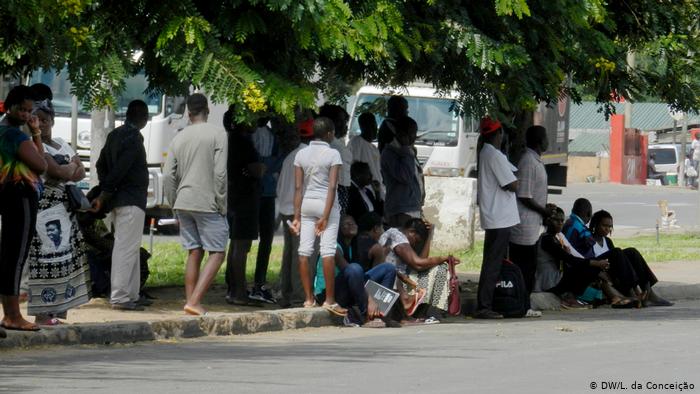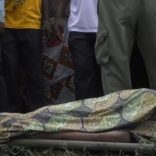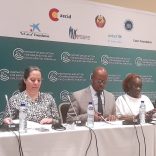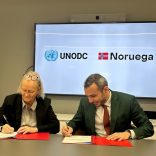Mozambique: Beira sees 10 femicides in five months - O País
Mozambique: Hunger affects thousands of families in Inhambane

Unemployment rose due to Covid-19 restrictions. [Photo: DW]
- The situation in the province of Inhambane, southern Mozambique, is serious. Agricultural campaigns have ended in failure, and thousands of families are starving. The government says it has a plan to respond to the problems.
Farmers in Inhambane say that they have harvested little or nothing in their latest agricultural campaign.
Helena Luís, a smallholder in Massinga district, told DW that she is having difficulty finding enough to eat.
“On the machamba, the cabbage is spoiled. Nothing can be saved. Even the cabbage is very shabby, the peanuts and corn died before anything was produced, the cassava worse – we sowed, but nothing came out. I’m reduced to picking mudembe [sweet potato leaves] to cook with tomatoes,” she says.
The reason is drought, exacerbated by the lack of jobs because of Covid-19 restrictions.
José Bambo, another smallholder in Morrumbene, says that every day is a drama. “Corn, there is nothing, because of the drought. It is only now that we are growing rice. There is really a lot of hunger, there is nothing – neither money, nor employment, nor support for the children in school. It is difficult. There is not even any support here,” he complains.
“It’s all just poverty”
Another smallholder, Maria Daimone, adds that everything in the shops is expensive. She says she has seen 25 kilos of rice at 1,300 meticais (€15.00), while her monthly income sometimes barely reaches 1,500 meticais (about €17.00).
“It is still serious – there is hunger. Really. No production in the fields, and everything expensive in the stores. What are we to do? It is all just poverty, and we are suffering,” she tells DW.
In June, the provincial government estimated that more than 60,000 families were starving. New figures are expected to be announced in late October, at the launch of the 2020/2021 agricultural campaign.
Government has plan to control hunger
The government says that it already has a plan to address hunger in the region, where climate change is increasingly affecting small farmers.
“The government should open more water boreholes and wells. We should no longer expect the big rains, to produce corn and sorghum. And we have to commercialise. So, let’s sow, but without much hope, because the rain doesn’t fall,” provincial director of Agriculture and Food Security in Inhambane Filomena Maiope says.
Albino Saíde, president of the Union of Peasants in Inhambane, looks at the ‘Sustenta’ project – a government programme that aims to help small farmers integrate within production value chains – with some hope.
Saíde says improving irrigation systems must be a priority, but a green light from the authorities is still lacking.
“The year was unproductive because of the lack of rain, and because many peasants in the province are not yet connected to any irrigation systems. And because we have not yet been trained in relation to the ‘Sustenta’ programme – the Provincial Union and its district delegations have not yet been notified that they will be part of this,” he says.












Leave a Reply
Be the First to Comment!
You must be logged in to post a comment.
You must be logged in to post a comment.